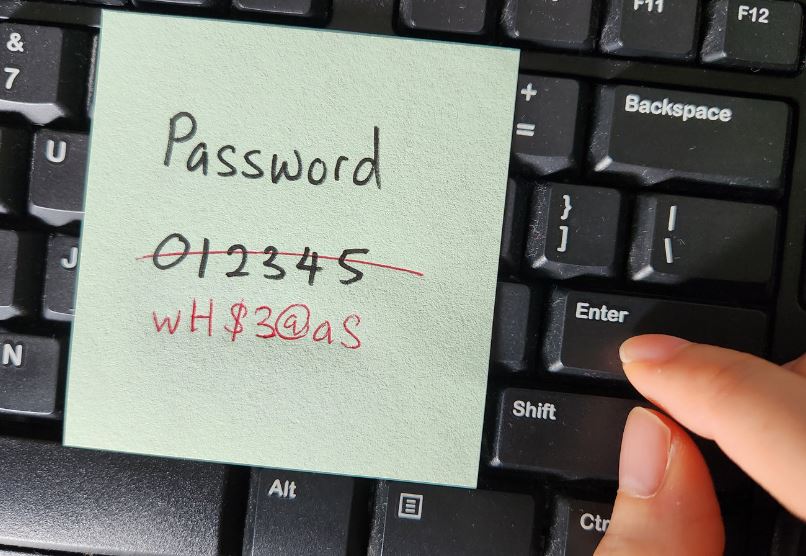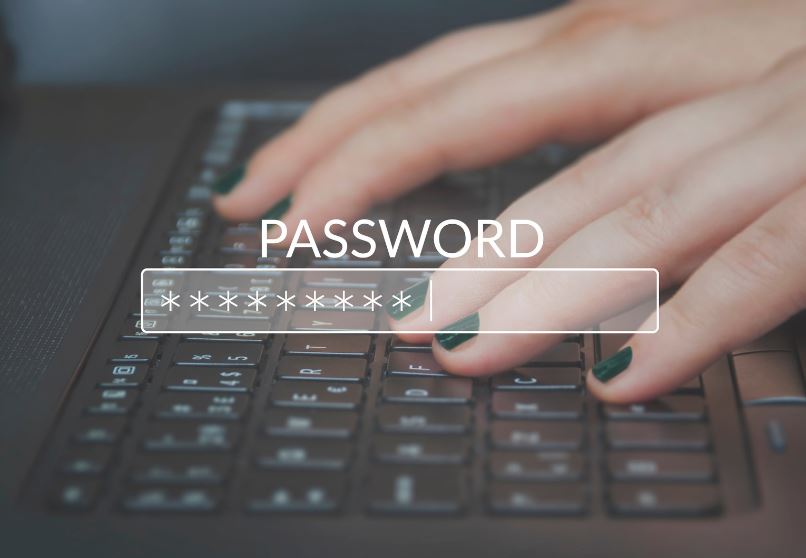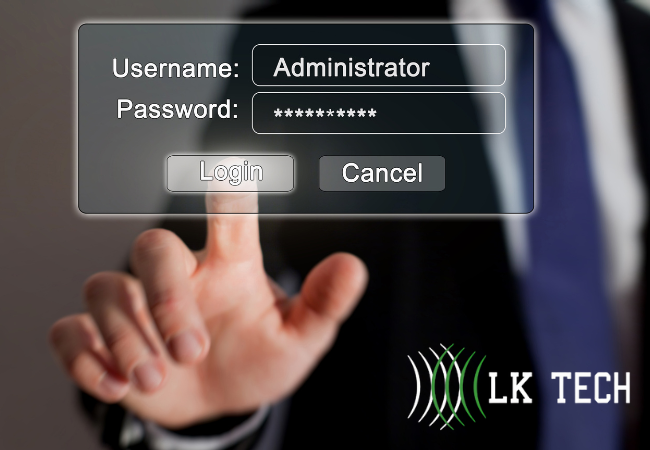In today's digital landscape, protecting sensitive information is paramount for small businesses. One of the most fundamental steps in ensuring online security is using strong passwords. This article will explore the risks associated with weak passwords and highlight why strong passwords are essential for small businesses. An IT Service Provider can assist in implementing robust password policies and other security measures to safeguard business data effectively.

The Risks of Weak Passwords
Weak passwords pose significant risks to small businesses. Cybercriminals continuously employ various techniques to gain unauthorized access to accounts and systems. Here are some of the risks associated with weak passwords:
- Brute Force Attacks: Weak passwords, especially those that are short or simple, are vulnerable to brute force attacks. In these attacks, hackers use automated tools to systematically guess passwords until they find the correct one. The shorter and simpler the password, the easier it is for the attacker to crack it.
- Password Guessing: Cybercriminals often attempt to guess passwords by leveraging personal information about individuals or using common passwords. Weak passwords that consist of easily guessable information like birthdates, names, or common dictionary words are particularly susceptible to this type of attack.
- Credential Stuffing: If an individual uses the same weak password across multiple accounts, attackers can take advantage of compromised credentials from one account to gain unauthorized access to other accounts. This technique, known as credential stuffing, is a significant threat to small businesses that may have multiple online accounts.
Why Strong Passwords are Essential for Small Businesses
Strong passwords are crucial for small businesses for several reasons:
- Protecting Sensitive Data: Small businesses often handle sensitive data, including customer information, financial records, and proprietary data. Strong passwords act as a critical barrier against unauthorized access to this valuable information.
- Preventing Unauthorized Access: By using strong passwords, small businesses can significantly reduce the risk of unauthorized access to their systems and accounts. This helps protect against data breaches, identity theft, and other forms of cyberattacks.
- Complying with Regulations: Depending on the industry, small businesses may be subject to various regulatory requirements regarding data security. Implementing strong passwords is often a necessary step to meet compliance standards and avoid potential legal and financial consequences.
- Mitigating Financial Losses: Small businesses that fall victim to cyberattacks can suffer substantial financial losses. Recovering from a data breach, restoring compromised systems, and dealing with legal implications can be extremely costly. Strong passwords serve as a crucial line of defense against these financial risks.
Emphasizing the importance of strong passwords helps small businesses better protect their valuable assets, maintain customer trust, and mitigate the impact of cyber threats. The next section will delve into the characteristics of strong passwords and provide strategies for creating them.

Characteristics of Strong Passwords
Creating strong passwords is essential for small businesses to protect their sensitive data and maintain their cybersecurity. When it comes to password strength, two key characteristics to consider are length and complexity. By focusing on these aspects, small businesses can significantly enhance their password security.
Length and Complexity
The length of a password plays a crucial role in its strength. Generally, longer passwords are more secure as they provide a larger number of possible combinations, making them harder to crack. It is recommended to have passwords that are at least 12 characters long. However, longer passwords, such as 15 or more characters, offer even greater security.
To increase the complexity of passwords, it's important to incorporate a combination of uppercase and lowercase letters, numbers, and special characters, such as !, @, #, $, %, etc. This mix of character types adds an extra layer of complexity, making it more difficult for hackers to guess or crack the password.
Creating complex passwords doesn't mean using random combinations of characters that are hard to remember. Instead, consider using passphrases, which are longer combinations of words or phrases that are meaningful to you but difficult for others to guess. For example, "CoffeeLoversUnite2022!" is a strong passphrase that incorporates uppercase and lowercase letters, numbers, and special characters.
Avoiding Common Mistakes in Password Creation
To ensure the strength of passwords, it's important to avoid common mistakes that can compromise security. Here are some common pitfalls to avoid:
- Avoid using easily guessable information, such as names, birthdays, or common words. Hackers often use personal information to guess passwords.
- Steer clear of using sequential or repetitive characters or keyboard patterns (e.g., "12345678" or "qwerty").
- Don't reuse passwords across multiple accounts. Each account should have a unique password to prevent a domino effect if one account is compromised.
- Avoid using commonly used or easily guessable passwords, such as "password" or "123456789."
Being mindful of these common mistakes allows small businesses to create strong, unique passwords that significantly enhance their cybersecurity. To further strengthen password security, consider implementing multi-factor authentication to add an extra layer of protection to your accounts.
Remember, password security is an ongoing effort. It's important to regularly update and change passwords to stay ahead of potential threats. By implementing these best practices, small businesses can greatly reduce their vulnerability to cyberattacks and protect their valuable data.
Strategies for Creating Strong Passwords
Creating strong passwords is essential for protecting the security of your small business. This way, you can significantly reduce the risk of unauthorized access to sensitive information. Here are some strategies to help you create strong passwords:
Utilizing Passphrases
One effective approach to creating strong passwords is to utilize passphrases. Passphrases are longer, memorable phrases that are easier to remember than a random string of characters. They provide a higher level of security while maintaining usability. Consider using a combination of words, numbers, and special characters to increase the complexity of your passphrase.
For example, instead of using a simple password like "password123," you could create a passphrase like "CoffeeLoversUnite#2021!". This passphrase is longer, incorporates capitalization, special characters, and numbers, making it significantly more secure.
Incorporating Special Characters and Numbers
Including special characters and numbers in your passwords adds an extra layer of complexity, making them more resistant to hacking attempts. When creating passwords, try to incorporate a mix of uppercase and lowercase letters, numbers, and special characters such as !, @, #, or $. This combination makes it harder for attackers to guess your passwords.
For example, instead of using a common word as a password, consider adding special characters and numbers. For instance, you could transform the word "password" into "P@ssw0rd!" by replacing letters with similar-looking characters and adding numbers and special characters.
Importance of Unique Passwords for Each Account
One critical aspect of password security is using unique passwords for each account. Reusing the same password across multiple accounts increases the risk of a security breach. If one account is compromised, all other accounts with the same password become vulnerable.
To ensure the security of your small business accounts, create a unique password for each account. This approach prevents a single compromise from affecting multiple systems. If remembering multiple passwords becomes challenging, consider using a password manager. Password managers securely store your passwords and allow you to access them with a single master password.
Implementing these strategies for creating strong passwords enhances the security of your small business. Remember to regularly update and change passwords, and educate employees on password best practices.
Implementing Password Management Practices
To ensure the security of your small business, it is essential to implement effective password management practices. By utilizing password managers, regularly updating and changing passwords, and implementing multi-factor authentication, you can significantly enhance the protection of your sensitive information.
Using Password Managers
Password managers are valuable tools for securely storing and managing passwords. They allow you to generate strong, unique passwords for each of your accounts and store them in an encrypted database. With a password manager, you only need to remember a single master password to access all your other passwords.
Advantages of using password managers include:
- Enhanced security: Password managers generate complex passwords that are difficult to crack, reducing the risk of unauthorized access.
- Convenience: You no longer need to remember multiple passwords or write them down, as the password manager securely stores them for you.
- Time-saving: Password managers can automatically fill in login credentials, saving you time and reducing the likelihood of errors.
Regularly Updating and Changing Passwords
Regularly updating and changing passwords is a crucial practice to protect your small business from security breaches. It is recommended to update passwords at least every three months, or more frequently for high-security accounts.
When updating passwords, consider the following guidelines:
- Complexity: Create passwords that include a combination of uppercase and lowercase letters, numbers, and special characters.
- Avoid common phrases: Avoid using easily guessable phrases or personal information in your passwords.
- Length: Aim for a minimum password length of 12 characters to increase its strength.
Remember, using the same password across multiple accounts increases the risk of a security breach.
Multi-Factor Authentication
Implementing multi-factor authentication (MFA) adds an extra layer of security to your small business accounts. MFA requires users to provide additional verification, typically in the form of a unique code or biometric data, in addition to their password.
Advantages of using multi-factor authentication include:
- Increased security: Even if an attacker obtains your password, they would still need the additional factor to gain access.
- Protection against password theft: MFA reduces the risk of unauthorized access due to compromised or stolen passwords.
- Flexibility: MFA can utilize various methods, such as SMS codes, authenticator apps, or biometrics.
It is recommended to enable MFA on all critical accounts, including email accounts, cloud storage, and financial platforms. Implementing password management practices such as using password managers, regularly updating and changing passwords, and enabling multi-factor authentication can significantly enhance your small business's security posture. Remember to educate your employees on these practices and establish password policies in the workplace.

Educating Employees on Password Security
Ensuring that employees are well-informed about password security is crucial for maintaining the overall security of a small business. By providing training on password best practices and establishing password policies in the workplace, businesses can significantly reduce the risk of security breaches.
Training on Password Best Practices
To create a strong password, employees should be educated on the best practices for password creation. Emphasize the importance of using unique and complex passwords that are difficult for others to guess. Here are some key points to cover in password training:
- Password Length: Encourage employees to create passwords with a minimum length of 12 characters. The longer the password, the more secure it becomes.
- Complexity: Instruct employees to include a combination of uppercase and lowercase letters, numbers, and special characters in their passwords. This mix of characters makes it harder for hackers to crack the password.
- Avoiding Personal Information: Advise employees to avoid using personal information such as names, birthdates, or addresses in their passwords. Hackers can easily guess such information.
- Password Rotation: Educate employees on the importance of regularly changing their passwords. Encourage them to change passwords at least every 90 days to minimize the risk of unauthorized access.
- Phishing Awareness: Train employees to be cautious of phishing attempts, where attackers attempt to trick them into revealing their passwords. Teach them how to identify and report suspicious emails or websites. For more information on email security, refer to our article on email filtering.
Establishing Password Policies in the Workplace
In addition to training employees, it's essential to establish password policies within the workplace. These policies serve as guidelines for employees to follow when creating and managing their passwords. Here are some key aspects to consider when establishing password policies:
- Minimum Requirements: Set specific criteria for password complexity, including minimum length, the use of different character types, and restrictions on common passwords. These requirements ensure that passwords are strong and difficult to guess.
- Password Storage: Emphasize the importance of not storing passwords in easily accessible locations, such as sticky notes or unencrypted files. Encourage the use of password management tools, such as password managers, to securely store and manage passwords. For more information on password managers, refer to our article on password management practices.
- Multi-Factor Authentication: Promote the use of multi-factor authentication (MFA) as an additional layer of security. MFA requires users to provide multiple forms of authentication, such as a password and a unique code sent to their mobile device, further protecting their accounts.
- Account Lockouts: Implement policies that automatically lock user accounts after a certain number of failed login attempts. This helps prevent brute-force attacks and unauthorized access to accounts.
Educating employees on password best practices and enforcing password policies allows small businesses to significantly enhance their security posture. Regularly reinforcing these practices and providing refresher training sessions ensure that employees remain vigilant and up-to-date on password security.

Monitoring and Auditing Password Security
Ensuring the security of passwords is an ongoing process for small businesses. Monitoring and auditing password security practices play a crucial role in maintaining a strong defense against potential threats. In this section, we will explore three important aspects of monitoring and auditing password security: conducting regular password audits, reacting to security breaches, and continuously improving password security practices.
Conducting Regular Password Audits
Regular password audits are essential for small businesses to assess the strength and effectiveness of their password security measures. These audits involve reviewing the passwords used by employees and identifying any weak or compromised passwords. By conducting regular audits, businesses can identify potential vulnerabilities and take appropriate actions to strengthen their password security.
During the password audit, it is important to analyze password strength, identify common patterns or mistakes, and ensure compliance with password policies. This can be done by using password auditing tools or by engaging the services of a cybersecurity professional. The results of the audit can provide valuable insights and help businesses make informed decisions about improving their password security practices.
Reacting to Security Breaches
In the unfortunate event of a security breach, it is crucial for small businesses to react swiftly and effectively. When a breach occurs, compromised passwords can be a significant concern. It is important to promptly identify the affected accounts, reset passwords, and notify the affected individuals.
Reacting to security breaches involves taking immediate action to secure the compromised accounts and prevent further unauthorized access. This may include temporarily disabling accounts, implementing additional security measures such as multi-factor authentication, and conducting a thorough investigation to determine the cause of the breach.
Continuously Improving Password Security Practices
Password security is an ongoing process that requires continuous improvement. Small businesses should regularly evaluate and enhance their password security practices to adapt to evolving threats and vulnerabilities. This includes staying updated with the latest industry best practices, implementing new technologies and tools, and educating employees on emerging password security trends.
Businesses can also consider implementing password management solutions, such as password managers, to enhance the overall security of their password practices. Password managers can help generate strong, unique passwords for each account and securely store them, reducing the risk of password-related issues.
Continuously improving password security practices allows small businesses to effectively mitigate risks and protect their valuable assets and sensitive information. Implementing robust password management, regular security audits, employee training, two-factor authentication (2FA), clear password policies, monitoring for unusual activity, and maintaining backup and recovery procedures are essential steps. Staying informed about cybersecurity threats and trends ensures proactive adaptation of security measures to safeguard against potential risks.

Secure Your Small Business with LK Tech
Protect your business from cyber threats with LK Tech's expert cybersecurity services in Cincinnati. We specialize in implementing robust cybersecurity measures tailored to small businesses. Learn effective password creation strategies and enhance your defense against cyber attacks.
Contact LK Tech today to fortify your business with proactive cybersecurity solutions that ensure peace of mind.


